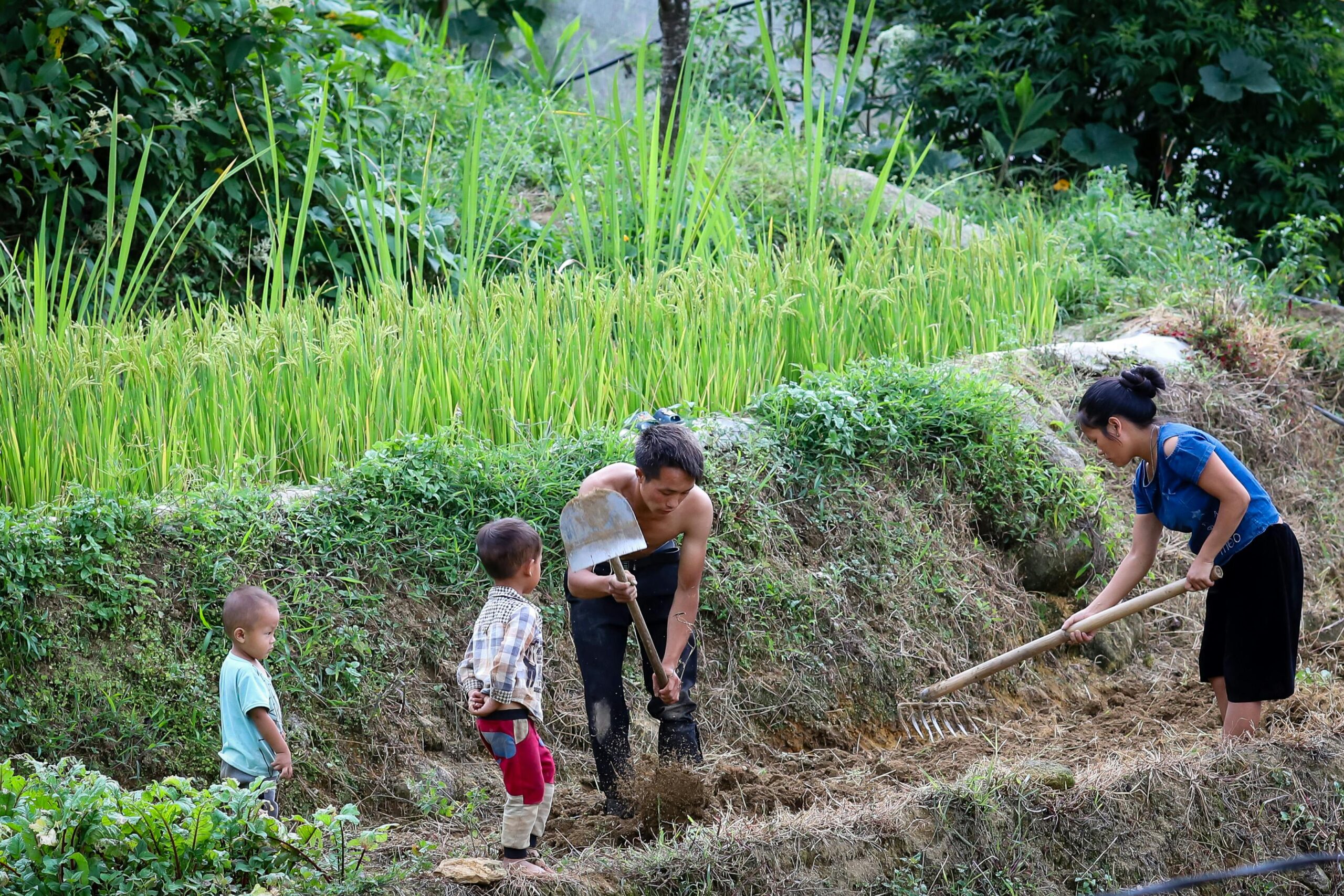For many individuals with roots tracing back to Canada, the dream of obtaining a Canadian passport can feel both tantalizingly close and frustratingly out of reach. A common question that arises is whether having a Canadian grandparent is a direct ticket to citizenship. While the idea is appealing, the reality of Canadian citizenship law is nuanced and governed by specific rules, primarily the “first-generation limit.” However, this does not close the door entirely. Certain specific circumstances and historical legislative contexts can create unexpected pathways to citizenship for the grandchildren of Canadians. This comprehensive guide explores the intricate rules of citizenship by descent, the critical limitations you must understand, and the potential exceptions that might apply to your unique situation, ultimately helping you determine if your Canadian grandparent’s legacy extends to you.
- Demystifying Citizenship by Descent: The Foundational Principles
- The Critical Hurdle: Navigating the First-Generation Limit on Canadian Citizenship Through a Grandparent
- Uncovering the Exceptions: Potential Pathways for Grandchildren to Claim Canadian Citizenship
- The Essential Application Process: Proving Your Claim to Canadian Citizenship
- Frequently Asked Questions
Demystifying Citizenship by Descent: The Foundational Principles
Understanding any potential claim to Canadian citizenship through a grandparent begins with grasping the core concept of citizenship by descent. Canada, like many countries, follows the principle of jus sanguinis, or “right of blood.” This means citizenship is not solely determined by where a person is born (jus soli) but can also be passed down from a parent to a child, regardless of the child’s country of birth. If one of your parents was a Canadian citizen at the time of your birth, you may have automatically acquired Canadian citizenship. This seems straightforward, but the modern Citizenship Act has placed significant limitations on how many generations born outside of Canada can inherit citizenship this way. This is where the complexity begins for grandchildren. The key is that citizenship is passed down one generation at a time. You do not inherit citizenship directly from a grandparent; you inherit it from a parent. Therefore, the central question is not “Was my grandparent Canadian?” but rather, “Was my parent a Canadian citizen at the time of my birth, and how did my parent get their citizenship?” This distinction is the bedrock of any successful claim and the source of most confusion.
Historically, the rules were more lenient, but significant amendments to the Citizenship Act in 2009 and 2015 were implemented to protect the value of Canadian citizenship and prevent it from being passed down indefinitely to generations of people with no substantial connection to Canada. These changes introduced what is now known as the “first-generation limit.” This rule specifies that a Canadian parent who was themselves born outside Canada and acquired citizenship by descent cannot pass that citizenship on to their own child if that child is also born outside Canada. This legislative change effectively creates a cutoff after the first generation born abroad. For a grandchild born outside Canada, if your Canadian parent was also born outside Canada (to your Canadian grandparent), you are considered the second generation born abroad, and this limit would typically prevent you from automatically being a citizen. Grasping this limitation is the first and most critical step in assessing your eligibility.
The Critical Hurdle: Navigating the First-Generation Limit on Canadian Citizenship Through a Grandparent
The first-generation limit is the single most important rule to understand when exploring a claim to Canadian citizenship through a grandparent. As established by the Citizenship Act, this principle is designed to ensure a meaningful connection to Canada for those who hold its citizenship. Let’s break this down with a practical, common scenario. Imagine your grandmother was born in Toronto, making her a Canadian citizen by birth. She later moved to the United Kingdom, where she gave birth to your father. Because your grandmother was Canadian when your father was born, your father is a Canadian citizen by descent. He is the “first generation born abroad.” Now, if your father remained in the United Kingdom and you were also born there, you would be the “second generation born abroad.” Under the current rules, your father cannot pass his citizenship by descent on to you. His status as a citizen by descent, rather than by birth in Canada, is the disqualifying factor.
This rule effectively severs the automatic transmission of citizenship after one generation born outside the country. It is a firm line drawn by Canadian immigration policy. The rationale behind this is that as generations move further from the family member who was born or naturalized in Canada, their connection to the country—socially, economically, and culturally—may diminish. Immigration, Refugees and Citizenship Canada (IRCC) will therefore meticulously examine the chain of citizenship. They will first verify your grandparent’s citizenship. Then, they will determine how your parent acquired their citizenship. If your parent is a citizen by descent (i.e., born outside Canada to a Canadian), and you were also born outside Canada, your path to automatic citizenship is blocked by this fundamental rule. It is essential to approach this issue with a clear understanding of this limitation to avoid disappointment and to focus your efforts on determining if any of the specific, and often rare, exceptions might apply to your family’s history.
Uncovering the Exceptions: Potential Pathways for Grandchildren to Claim Canadian Citizenship
While the first-generation limit is a formidable barrier, it is not absolute. Certain specific and less common circumstances can create a valid claim to citizenship for a grandchild. These exceptions hinge on the precise details of your parent’s life and status, effectively bypassing the second-generation cutoff. One of the most significant exceptions involves the concept of “Crown service.” If your Canadian parent (the first generation born abroad) was employed by the Canadian federal government, a provincial government, or the Canadian Armed Forces at the time of your birth, the first-generation limit does not apply. In this scenario, your parent is treated as if they were in Canada, allowing them to pass on citizenship to you despite you also being born abroad. This provision recognizes the service of Canadians working overseas on behalf of the country and ensures their children are not disadvantaged by their parents’ official duties.
Another crucial scenario to investigate is the exact circumstances of your Canadian parent’s birth. The assumption that your parent, born outside Canada to a Canadian grandparent, is automatically a citizen *by descent* might be incorrect. For instance, if your Canadian grandparent was living abroad but your parent was born *in Canada*—perhaps during a family visit back home—then your parent is a Canadian citizen by birth (jus soli), not by descent. In this case, your parent can pass citizenship on to you, as you would be the first generation born abroad, not the second. This highlights the immense importance of obtaining official birth records. Furthermore, historical changes in citizenship law have created pathways for so-called “Lost Canadians.” Certain individuals who lost or were never granted citizenship due to outdated or discriminatory provisions in previous versions of the Citizenship Act may have had their status restored. If your parent or grandparent falls into this category, it could retroactively change your own eligibility, making it a complex but worthwhile area to explore with detailed family history records.
The Essential Application Process: Proving Your Claim to Canadian Citizenship
If you believe you meet the criteria for citizenship by descent, either directly as a first-generation born abroad or through one of the exceptions for grandchildren, the next step is to formally prove it. You cannot simply apply for a Canadian passport; first, you must obtain a Proof of Canadian Citizenship, also known as a citizenship certificate. This document is the official recognition from the Government of Canada that you are, in fact, a citizen. The application for a citizenship certificate is a meticulous, document-heavy process that requires you to establish an unbroken, legitimate line of descent from your Canadian ancestor. You will need to build a comprehensive portfolio of vital records that leaves no room for doubt in the mind of the IRCC officer reviewing your case. This involves a genealogical and administrative deep dive into your family’s history, gathering official documents from multiple jurisdictions and potentially multiple generations.
The burden of proof lies entirely on the applicant. Your application must be supported by a clear and verifiable paper trail. This requires diligence, patience, and an exceptional level of organization. Any gaps in documentation or inconsistencies between records can lead to significant delays or even the refusal of your application. It is imperative to ensure that all names and dates of birth on the documents align perfectly to demonstrate the direct familial link from your Canadian grandparent to your parent, and from your parent to you. Once IRCC approves your application and issues your citizenship certificate, you will have the definitive proof required to then apply for your first Canadian passport and exercise the full rights of a Canadian citizen.
Key Documents for Your Citizenship Certificate Application
- Your Canadian Grandparent’s Proof of Citizenship: This is typically a Canadian birth certificate if they were born in Canada, or their Canadian citizenship certificate/card if they were naturalized. Your Canadian Parent’s Proof of Citizenship: You will need their Canadian birth certificate (if born in Canada) or their foreign birth certificate that lists your Canadian grandparent as their parent. If they were born abroad, you may also need their own citizenship certificate. Your Original Birth Certificate: This must be a detailed or long-form version that clearly lists the full names of both of your parents. A short-form certificate is often insufficient. Supporting Identity and Linkage Documents: This includes your parents’ marriage certificate, your grandparent’s marriage certificate, and any legal name change documents for anyone in the chain of descent. These documents help prove the familial links. Your Government-Issued Photo Identification: A copy of your passport or other official photo ID is required to verify your own identity. Application Forms and Photos: You must use the correct, most up-to-date IRCC application form for a citizenship certificate for adults and submit passport-style photos that meet the strict specifications.
Frequently Asked Questions
What is Canadian citizenship by descent?
Citizenship by descent, based on the principle of jus sanguinis or “right of blood,” is a way of acquiring Canadian citizenship automatically at birth if at least one of your parents was a Canadian citizen when you were born. It allows citizenship to be passed down from a parent to a child born outside of Canada.
Can I get Canadian citizenship if my grandparent was Canadian?
Generally, you cannot claim citizenship directly from a grandparent. Citizenship is passed down from a parent. If your Canadian parent was also born outside of Canada (making them a citizen by descent), they typically cannot pass citizenship on to you due to the “first-generation limit.” However, specific exceptions, such as your parent being in Crown service, may allow you to qualify.
What is the “first-generation limit” for Canadian citizenship?
The first-generation limit is a rule in the Canadian Citizenship Act stating that a Canadian citizen who was born outside Canada and gained citizenship by descent cannot pass that citizenship on to their own child if that child is also born outside Canada. This rule effectively stops the automatic transmission of citizenship after the first generation born abroad.
How do I prove my claim to citizenship through a grandparent?
To prove your claim, you must first apply for a Proof of Citizenship (citizenship certificate) from IRCC, not a passport. This requires submitting extensive documentation, including birth certificates for yourself, your parent, and your grandparent, along with marriage certificates and other records to establish a clear and unbroken line of descent.
What is a Proof of Citizenship certificate and why do I need it?
A Proof of Citizenship certificate is the official document issued by the Government of Canada that confirms your status as a Canadian citizen. It is essential for anyone who acquired citizenship by descent and does not have a Canadian birth certificate. You must have this certificate before you can apply for a Canadian passport.
Talk to us to find out more. ->
The content above is not intended to provide legal advice or opinions of any kind and may not be used for professional or commercial purposes.







